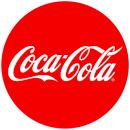Lifecycle Marketing
Maximize customer retention and lifetime value with data-driven lifecycle marketing services. From onboarding to reactivation, guide every touchpoint with AI precision and behavioral insights that drive revenue.
What Is Lifecycle Marketing?
Lifecycle marketing is a strategic approach that delivers personalized messaging and engagement based on each customer’s stage in the buying journey. It uses segmentation, automation, and data analytics to influence behavior from acquisition to loyalty and reactivation.
Why Lifecycle Marketing Matters for Business Success
Increased Online Visibility: Reach customers where they search.
AI-driven lifecycle marketing ensures your brand appears at the right time, whether through automated emails, retargeted ads, or SEO-informed content. By aligning your message with a user’s current intent, you remain visible and relevant across key digital channels.
Qualified Lead Generation: Attract users with genuine intent.
Targeted lifecycle campaigns focus on users who have already shown interest. Using predictive AI models, these strategies segment audiences based on behavior, nurturing them with tailored content that increases the chance of conversion.
Higher Conversion Potential: Optimize the user journey for better results.
Lifecycle marketing automates critical touchpoints—welcome emails, cart reminders, loyalty nudges—timed precisely to user behavior. This creates smoother pathways to purchase, reducing friction and improving conversion metrics across the funnel.
Competitive Edge: Outrank market rivals and secure premium placements.
By leveraging AI to automate personalization and timing, businesses implementing lifecycle marketing can outperform competitors still using generic or one-size-fits-all strategies. Smart segmentation also reduces ad spend waste and increases campaign ROI.
Enhanced Brand Authority: Build trust with consistent and strategic visibility.
Consistency builds familiarity. Lifecycle marketing reinforces your brand message through well-timed, channel-specific interactions that reflect user needs and preferences—resulting in stronger brand recall and increased customer trust.
Case Study: What You Can Expect from Lifecycle Marketing
Implementing lifecycle marketing powered by AI and automation leads to measurable gains across visibility, engagement, and retention. By integrating behavioral triggers, predictive analytics, and channel orchestration, businesses can improve performance across every stage of the customer journey.
Results Overview
Clients using AI-enhanced lifecycle marketing often report improved customer engagement, higher purchase frequency, and stronger retention rates. Campaigns that respond in real time to user behavior consistently outperform static campaigns in terms of conversion and customer value.
- Open Rates: Automated, behavior-based email flows see up to 35% higher open rates compared to traditional newsletters.
- Repeat Purchase Rate: Brands experience an increase of 25–40% in repeat purchases within six months of implementation.
- Customer Lifetime Value (CLV): Average CLV rises by 30–50% due to consistent touchpoints and post-purchase follow-up.
- Churn Reduction: Personalized re-engagement sequences can lower churn by 20% or more, particularly in subscription-based businesses.
Forecast Example
Client Type: Mid-Sized E-Commerce Brand
Implementation Timeline: 12 months
Metric | Before Lifecycle Marketing | After Lifecycle Marketing | Change |
Monthly Traffic | 50,000 | 75,000 | +50% |
Monthly Sales | 500 | 700 | +40% |
Qualified Leads | 1,000 | 1,400 | +40% |
Repeat Purchases | 300 | 450 | +50% |
CLV (USD) | $120 | $180 | +50% |
Our Partners and Projects



Types of Lifecycle Marketing Services We Offer
Lifecycle marketing requires a tailored approach depending on your business model and audience behavior. Our offerings span the full customer lifecycle with targeted, data-backed solutions.
- Customer Onboarding Automation: Nurture new users through sequenced email flows, in-app messaging, and targeted ads to accelerate time-to-value.
- Behavior-Based Retargeting: Re-engage users based on specific actions or drop-off points using cross-channel automation.
- Cart Abandonment Campaigns: Recover lost revenue with personalized reminders triggered in real time.
- Re-Engagement Campaigns: Reconnect dormant subscribers or past customers with curated incentives and AI-generated content.
- Loyalty and Win-Back Programs: Strengthen retention with automated reward campaigns and predictive churn analysis.
Our Process
Every lifecycle marketing solution is built on a repeatable, performance-driven framework designed to adapt to your goals and customer behavior.
- Discovery & Audit
Review current touchpoints, segmentation models, and data flows to identify gaps in your lifecycle engagement. - Persona & Journey Mapping
Define lifecycle stages and align user behavior with ideal messaging, offer types, and timing. - AI-Driven Segmentation
Use machine learning to identify high-value segments and predict future actions such as churn, purchase, or reactivation. - Content & Workflow Development
Create personalized email flows, ads, and push campaigns that adjust based on real-time interaction and engagement signals. - Automation Setup & Testing
Implement automation using your CRM or marketing platform, with A/B testing protocols for subject lines, timing, and offers. - Performance Tracking & Optimization
Monitor KPIs such as engagement, retention, and CLV. Adjust flows monthly using predictive performance modeling.
AI-Enhanced Lifecycle Marketing Services
Artificial intelligence adds speed, precision, and scale to every phase of the lifecycle marketing process. At AIIImpact, AI tools are integrated to enhance targeting, timing, and message relevance across customer touchpoints.
Key Advantages of AI in Lifecycle Marketing:
- Predictive Analytics: Anticipate customer actions, such as likelihood to convert or churn, using historical and real-time behavioral data.
- Automated Segmentation: Identify micro-segments in your audience to deliver more personalized communications.
- Smart Content Recommendations: Generate dynamic content based on user profiles, interactions, and purchase history.
- Workflow Optimization: AI streamlines multichannel workflows to deliver the right message at the optimal time without manual intervention.
- Performance Insights: Get real-time feedback on campaign health, with machine learning models identifying areas for improvement.
Our team uses tools like HubSpot, Klaviyo, Salesforce Marketing Cloud, and proprietary AI-driven scoring systems to automate and enhance lifecycle strategies, ensuring marketing efforts adapt continuously to audience behavior.
Why Choose Our Lifecycle Marketing
Expertise and Innovation
Our lifecycle marketing solutions are powered by a combination of industry best practices and cutting-edge tools. We apply predictive algorithms, behavioral insights, and automation frameworks to deliver campaigns that are timely, relevant, and results-driven.
Personalized Service Approach
Each strategy is custom-built to reflect your sales cycle, customer personas, and product nuances. This ensures every message aligns with user intent—boosting conversions and minimizing marketing waste.
Digital Integration Excellence
Our services are designed to integrate seamlessly with your existing martech stack—whether that includes CRM systems like Salesforce, eCommerce platforms like Shopify, or ERPs like NetSuite. This allows for unified tracking, reporting, and strategic alignment across departments.
Full-Service Support Model
From onboarding and strategy to content development, automation setup, and optimization, we handle every stage of the lifecycle marketing journey. Clients benefit from expert support, continuous refinement, and measurable ROI growth.
Meet Our Team





- AI Strategists – Develop data-driven marketing plans using machine learning insights.
- Content Specialists – Create AI-optimized, high-converting copy for various platforms.
- Data Analysts – Interpret campaign metrics to refine targeting and improve performance.
- Automation Experts – Implement AI tools to streamline workflows and personalize engagement.
- SEO Professionals – Optimize content using AI-driven keyword research and search trends.
- Ad Specialists – Leverage AI algorithms to maximize ROI on digital advertising campaigns.
- UX Designers – Enhance customer experience through AI-powered personalization.
- Developers & Engineers – Build and integrate AI solutions for marketing automation.
- Client Success Managers – Ensure AI-driven strategies align with business objectives.
- Social Media Analysts – Use AI to track trends, monitor sentiment, and optimize content.
Factors Influencing Lifecycle Marketing Services Cost
The cost of lifecycle marketing varies based on project complexity, business size, and the level of automation required. These services are highly customizable, which means pricing is influenced by multiple variables.
Audience Size and Segmentation Complexity
Larger audiences require more robust segmentation, increased messaging volume, and advanced automation logic, all of which raise the cost.
Integration with Existing Systems
Custom integrations with CRMs, ERPs, or analytics platforms may increase implementation time and technical costs.
Channel Coverage
The number of channels (email, SMS, paid ads, in-app messaging) impacts workload, content strategy, and automation design.
Level of Personalization
Hyper-personalized campaigns using AI for dynamic content, behavior-based targeting, or predictive scoring typically require higher investment.
Strategy Depth and Optimization Frequency
Ongoing A/B testing, funnel optimization, and real-time performance tracking contribute to monthly service scope and price.
What’s Included in Lifecycle Marketing
Our service model is structured around four core phases that ensure a fully automated, high-performance lifecycle strategy. Each phase is supported by AI-powered tools and industry-proven methodologies.
Discovery and Audit
- Review of current CRM/ESP tools
- Mapping of existing customer journey
- Lifecycle gap analysis and segmentation audit
Strategy and Journey Architecture
- Persona refinement and funnel mapping
- Content and offer alignment by stage
- Multi-channel engagement planning
Automation and Content Buildout
- Copywriting and visual asset creation
- Workflow and rule configuration in automation platforms
- AI-based logic for triggers and send-time optimization
Launch, Testing, and Optimization
- Campaign deployment and QA
- A/B and multivariate testing
- Conversion and retention optimization based on analytics
Reporting and Performance Scaling
- Monthly performance reports
- AI-driven adjustment recommendations
- Quarterly strategy revisions for scalability
Benefits of AI-driven Lifecycle Marketing
Concrete advantages offered by this service include:
- Improved customer retention through behavior-specific messaging
- Increased purchase frequency via intelligent timing and upsell flows
- Reduction in manual workload with automated campaign execution
- Higher ROI from hyper-targeted and data-informed communications
- Real-time adjustment capabilities based on AI performance insights
- Better segmentation accuracy using predictive scoring models
- Enhanced cross-channel consistency and messaging relevance
- Greater transparency and accountability through KPI-based reporting
Setup and Launch Process for Lifecycle Marketing
The onboarding process is designed to ensure efficient implementation with minimal disruption to your existing workflows. Each step includes technical setup, strategic alignment, and AI calibration for optimal performance.
- Initial Consultation & Goal Setting
Define business objectives, KPIs, and lifecycle stages to target (e.g., acquisition, retention, win-back). - Audit of Existing Data and Systems
Evaluate current CRM, email platforms, and analytics tools for data readiness and integration feasibility. - Customer Journey Mapping
Create detailed maps for each lifecycle stage based on user behavior, channel preference, and conversion goals. - Segmentation & Personalization Frameworks
Build dynamic audience segments using AI and behavior scoring models to tailor messaging. - Workflow Design & Automation Setup
Develop and configure campaign flows, triggers, and scheduling in your chosen platforms. - Content Development
Craft copy and creative assets aligned with each lifecycle stage, using AI suggestions for subject lines and CTAs. - Testing & Quality Assurance
Conduct QA, run test scenarios, and ensure accurate data capture and logic flows. - Launch & Monitoring
Deploy campaigns and begin real-time tracking of user engagement and conversion activity. - Performance Review & Optimization
Analyze results, apply AI insights for improvement, and scale successful strategies.
Tools and Platforms Used in Lifecycle Marketing
Our lifecycle marketing service stack combines top-tier automation tools, CRM integrations, and AI solutions to deliver performance-driven outcomes.
Marketing Automation Platforms
- HubSpot – Full CRM, email automation, and behavior tracking
- Klaviyo – Ideal for eCommerce lifecycle flows with real-time event triggers
- ActiveCampaign – Deep segmentation and behavioral automations for SMBs
- Salesforce Marketing Cloud – Enterprise-level orchestration with AI modules
AI & Analytics Tools
- Mutiny – AI-powered website personalization
- Phrasee – Natural language generation for high-performing email copy
- Optimove – Predictive modeling for customer retention and churn reduction
- Google Analytics & GA4 – Behavior analysis and attribution tracking
- Segment – Data piping and real-time audience syncing across platforms
CRM & Data Platforms
- Salesforce, HubSpot CRM, Zoho CRM, Shopify, BigCommerce
- Integration via Zapier, Integromat, or direct APIs for seamless data flow
Frequently Asked Questions (FAQs)
How long does it take to implement lifecycle marketing?
Most clients are fully launched within 4–6 weeks, depending on complexity, existing infrastructure, and data availability.
What size businesses benefit most from this service?
Lifecycle marketing is scalable for startups, DTC brands, and enterprises. It’s particularly valuable for eCommerce, SaaS, and membership-based models.
Can I use my existing CRM or email platform?
Yes. Our team integrates with platforms like HubSpot, Salesforce, Klaviyo, and others to maximize your existing tech stack.
Do I need a large contact list to benefit?
No. AI-powered segmentation works effectively with smaller lists by optimizing timing, content, and frequency to increase engagement.
What makes AI-driven lifecycle marketing more effective than traditional campaigns?
AI automates decisions based on real-time data, enabling personalized interactions at scale. This increases efficiency, accuracy, and ROI.
How is performance tracked?
We use advanced analytics tools to monitor KPIs like open rates, conversions, CLV, and retention. Reports are shared monthly with optimization recommendations.
Can this service include SMS and push notifications?
Yes. We offer multichannel lifecycle solutions that include email, SMS, push, in-app messaging, and even direct mail for hybrid campaigns.
Is content creation included in the service?
Yes. Copywriting, visuals, and AI-enhanced message generation are part of each campaign build.
How often is the strategy reviewed?
Lifecycle strategies are reviewed quarterly, with monthly optimizations informed by AI analytics and engagement data.
Do you support international customer bases?
Yes. We offer multi-language lifecycle campaign development and time zone-based delivery scheduling for global outreach.
Make Impact With Your Business
Contact AIIImpact by filling out this form
